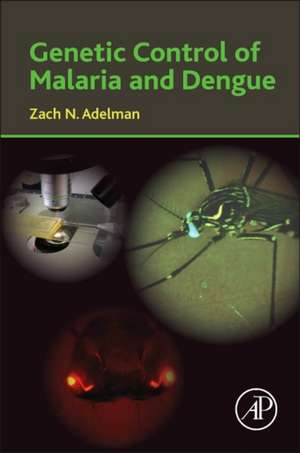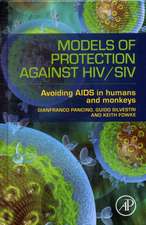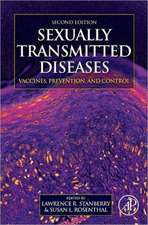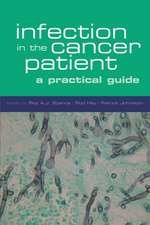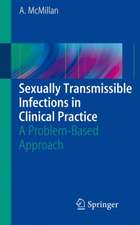Genetic Control of Malaria and Dengue
Autor Zach N. Adelmanen Limba Engleză Hardback – 10 dec 2015
For more than five decades, the prospect of using genetically-modified mosquitoes to control vector-borne disease transmission has been a purely hypothetical scenario. We simply did not have the technology or basic knowledge to be able to do it. With the explosion of field trials and potential interventions in development, Genetic Control of Malaria and Dengue provides a comprehensive overview of research in genetics, microbiology, virology, and ecology involved in the development and implementation of genetic modification programs for virus and disease control. This book is meant to provide a practical guide to researchers, regulators and the general public about how this technology actually works, how it can be improved, and what is still unknown.
- Includes coverage of vectorial capacity, critical to understanding vector-borne disease transmission
- Provides a summary of the concepts of both population suppression and population replacement
- Contains pivotal coverage of ethical and ecological ramifications of genetics-based control strategies
Preț: 415.89 lei
Preț vechi: 483.09 lei
-14% Nou
Puncte Express: 624
Preț estimativ în valută:
79.58€ • 83.31$ • 65.85£
79.58€ • 83.31$ • 65.85£
Carte tipărită la comandă
Livrare economică 29 martie-12 aprilie
Preluare comenzi: 021 569.72.76
Specificații
ISBN-13: 9780128002469
ISBN-10: 0128002468
Pagini: 486
Dimensiuni: 152 x 229 x 28 mm
Greutate: 0.89 kg
Editura: ELSEVIER SCIENCE
ISBN-10: 0128002468
Pagini: 486
Dimensiuni: 152 x 229 x 28 mm
Greutate: 0.89 kg
Editura: ELSEVIER SCIENCE
Cuprins
- Transgenic Pests and Human Health: A Short Overview of Social, Cultural, and Scientific Considerations
- Concept and History of Genetic Control
- Considerations for disrupting malaria transmission in Africa using genetically-modified mosquitoes; ecology of Anopheline disease vectors, and current methods of control
- Ecology of malaria vectors, and current (non-genetic) methods of control in the Asia region
- Ecology of Anopheles darlingi, the primary malaria vector in the Americas, and current non-genetic methods of vector control
- Considerations for Disrupting Dengue Virus Transmission; Ecology of Aedes aegypti and Current (Non-genetic) Methods of Control
- The Challenge of Disrupting Vectorial Capacity
- Gene insertion and deletion in mosquitoes
- Gene Drive Strategies for Population Replacement
- Exploring the sex-determination pathway for control of mosquito-borne infectious diseases
- Disruption of Mosquito Olfaction
- Disruption of mosquito blood meal protein metabolism
- Engineering Pathogen Resistance in Mosquitoes
- Genetic control of malaria and dengue using Wolbachia
- Employing the Mosquito Microflora for Disease Control
- Regulation of Transgenic Mosquitoes
- Economic analysis of genetically modified mosquito strategies
- Community engagement
- Impact of genetic modification of vector populations on the malaria eradication agenda
